A Look Back at ISblue COP 2024
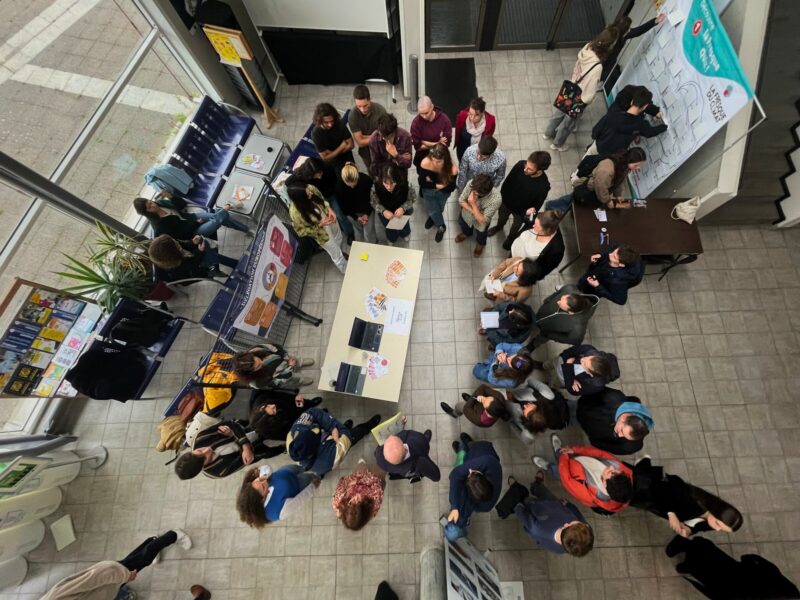
On 19 November 2024, at the Institut Universitaire Européen de la Mer (IUEM), the Sciences-Society COP (ISblue) educational format was presented, immersing Master 2 students in Marine and Coastal Sciences in a simulation of Science-Society climate negotiations. The aim of the project was to give students an insider’s view of the complex dynamics of discussions around the Sustainable Development Goals (SDGs), based on the United Nations Conference of the Parties (COP) model.
An Immersive and Interactive Morning
In the morning, students were divided into working groups and invited to negotiate the concrete actions to be implemented in 3 different territories (UBO campus, France, Europe) to achieve the SDGs:
- Negotiations between stakeholders: the various departments, ministries or delegations represented by the students proposed concrete actions to achieve the SDGs in their respective territories. Constrained by a limited budget, the groups tried to reach a consensus, to get the majority to adopt their measures, and to counter-argue in case of disagreement.
Controversial issues also formed part of this teaching format, such as the reflective work on the debate on the effectiveness and necessity of the Climate COP or the comparison between the approach to socio-environmental transformations taken by the SDGs and the Donut Theory. For these open formats, the students proposed different approaches:
- A theatrical re-enactment of the COP: in the form of a play, the students re-enacted the intense debates at COP 28, which took place in Dubai in 2023. The students offered a constructive and well-argued critique of the Conference of the Parties on climate change, playing the roles of COP stakeholders
- A serious game based on the Donut Theory: another group has designed an innovative escape game to explore the concept of the Donut Theory, developed by economist Kate Raworth, in a fun and interactive way. This model seeks to reconcile essential human needs with planetary limits.
These immersive formats enabled participants to acquire skills in negotiation, conflict management and communication, while deepening their understanding of climate challenges.
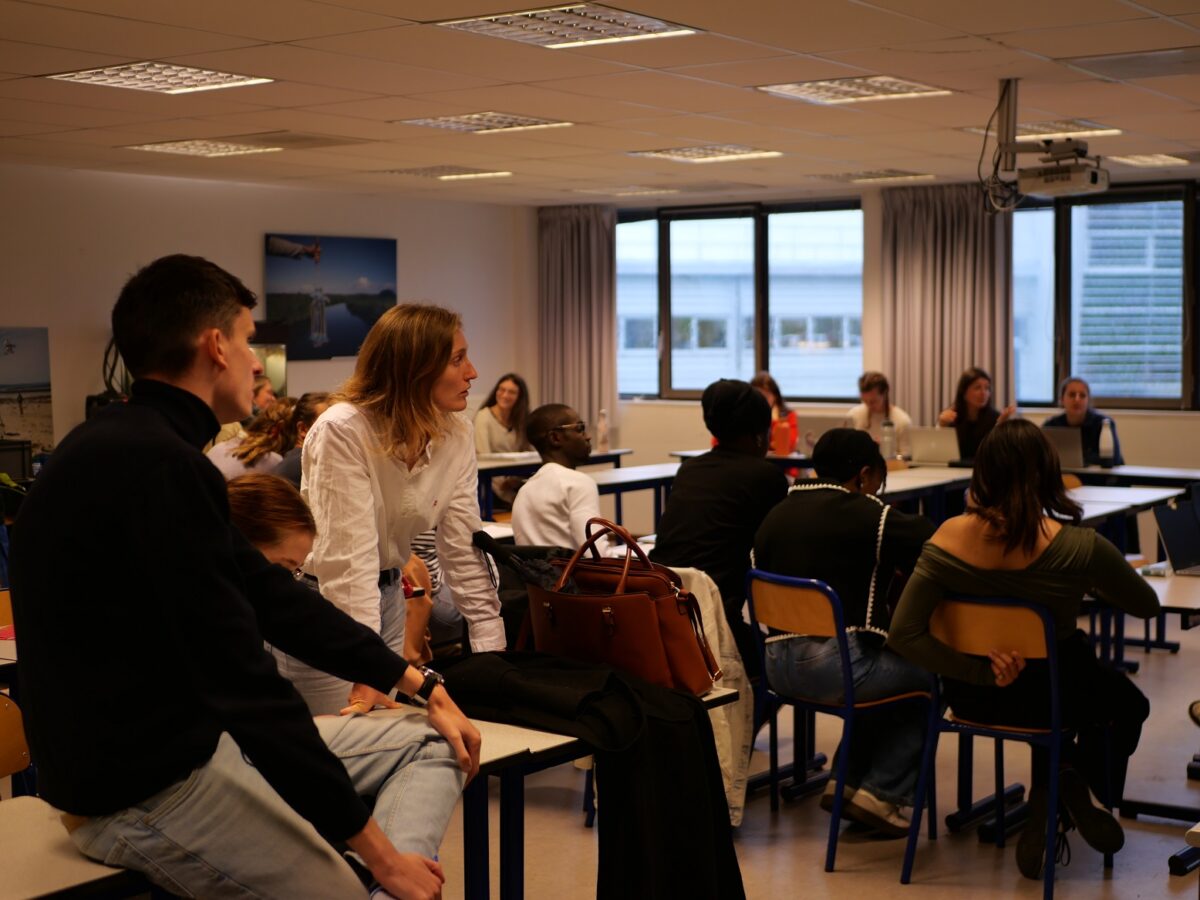
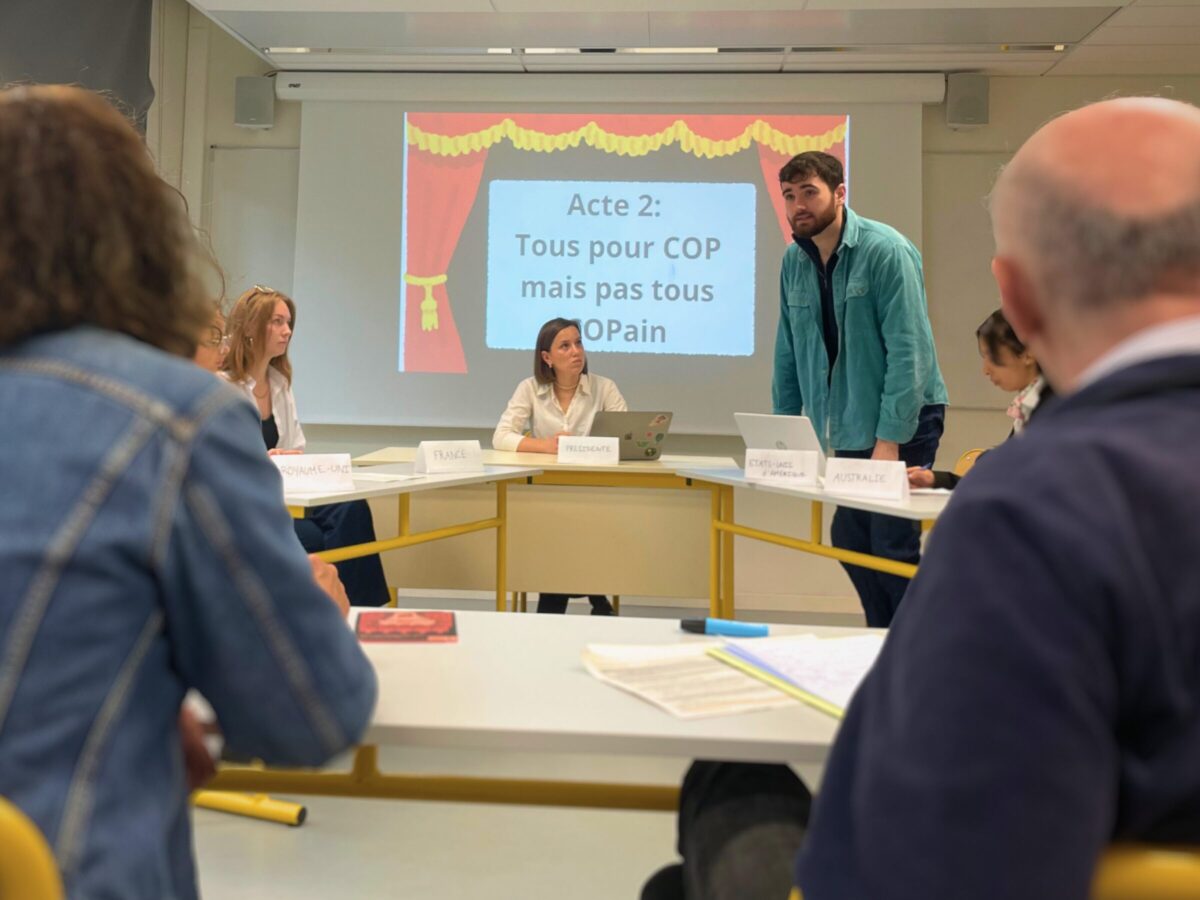
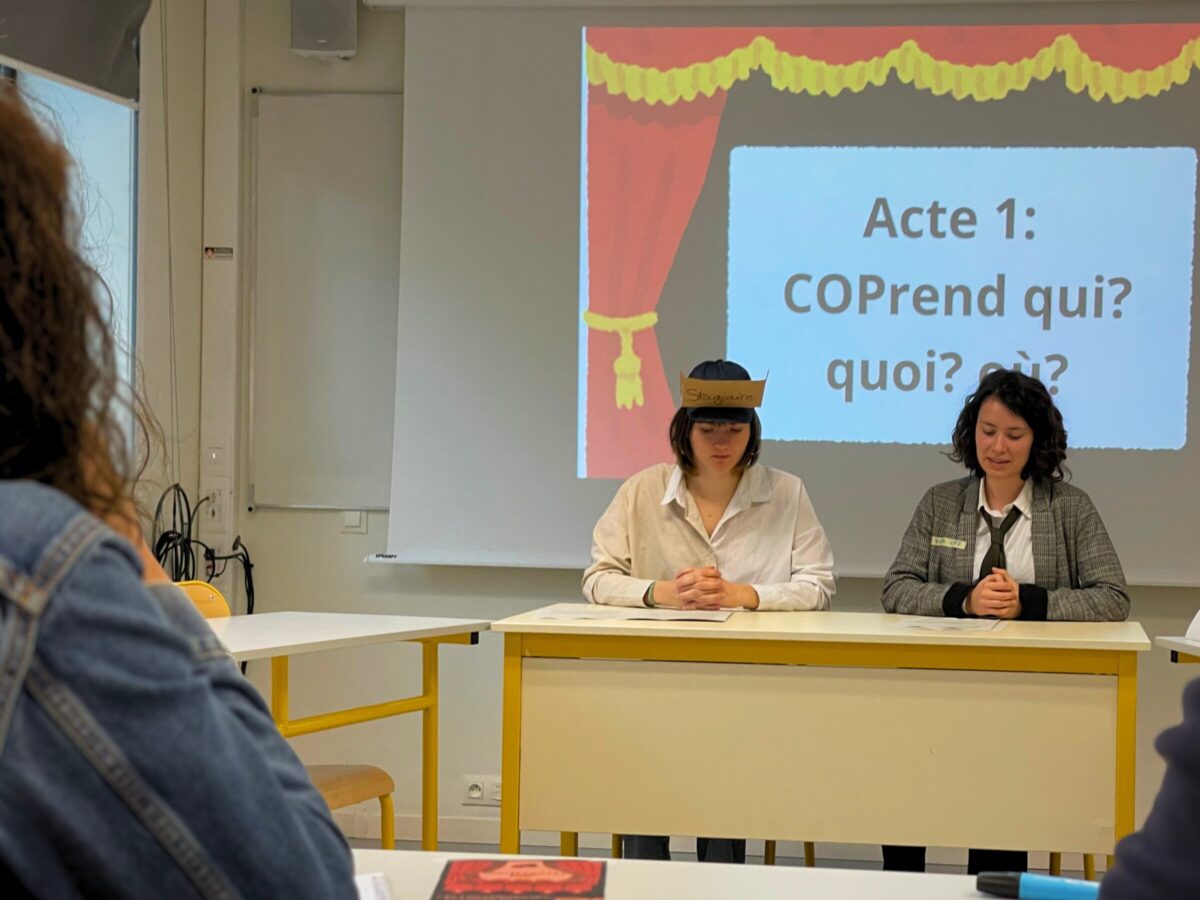
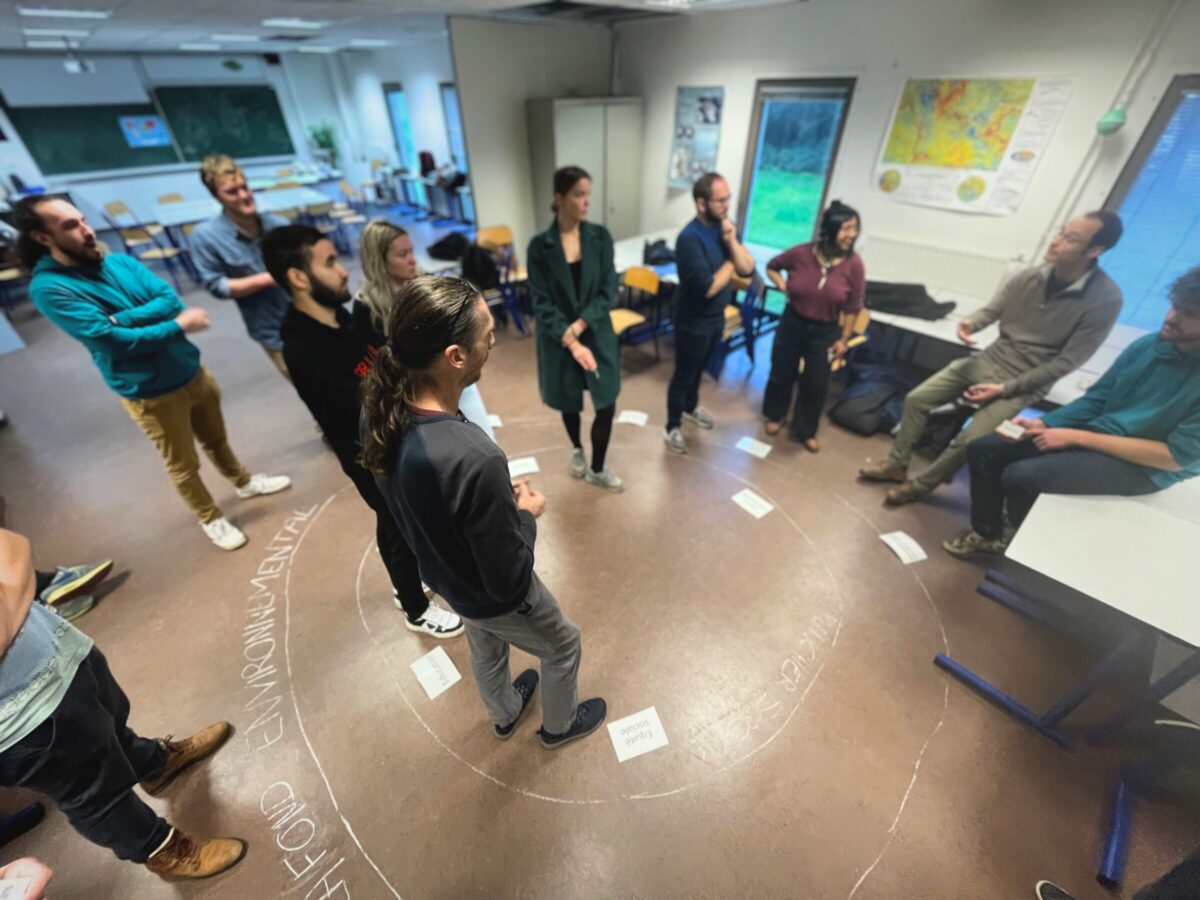
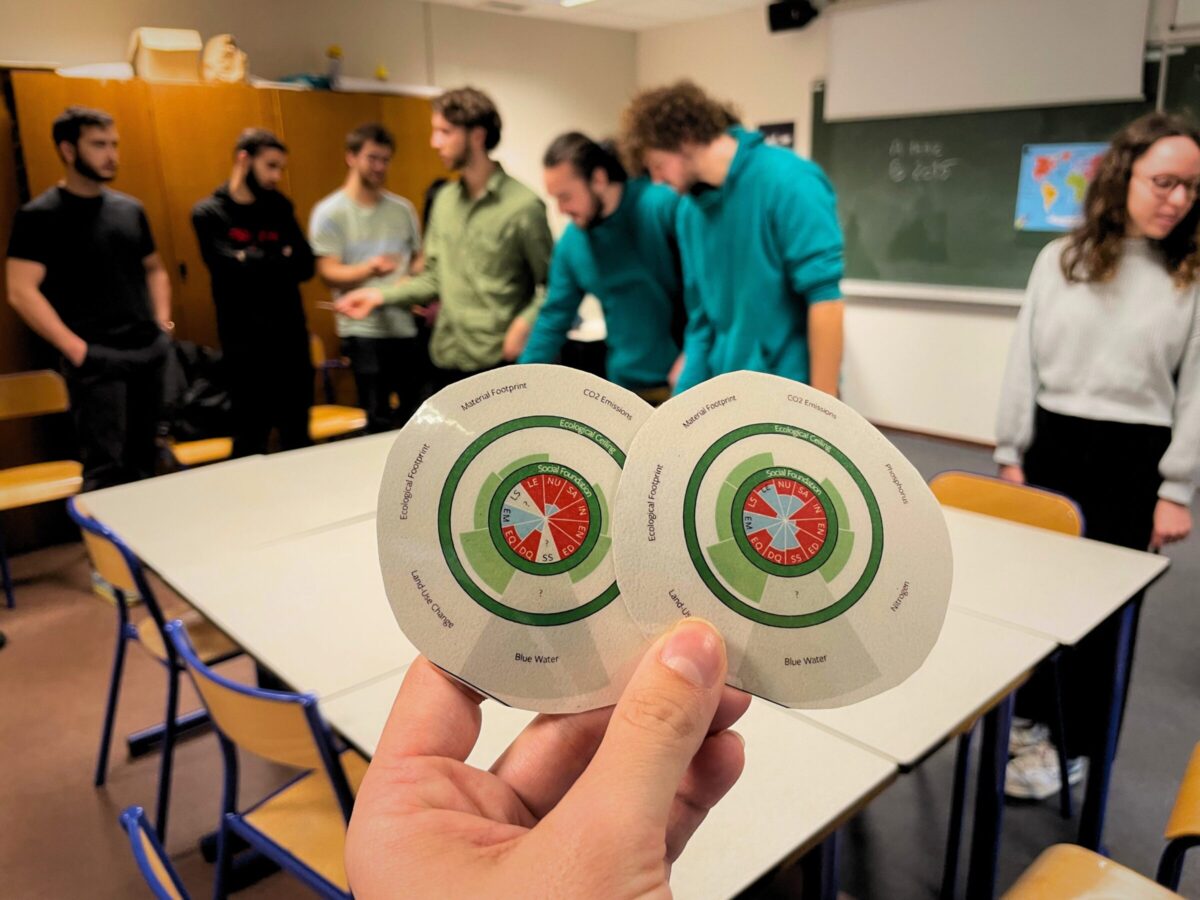
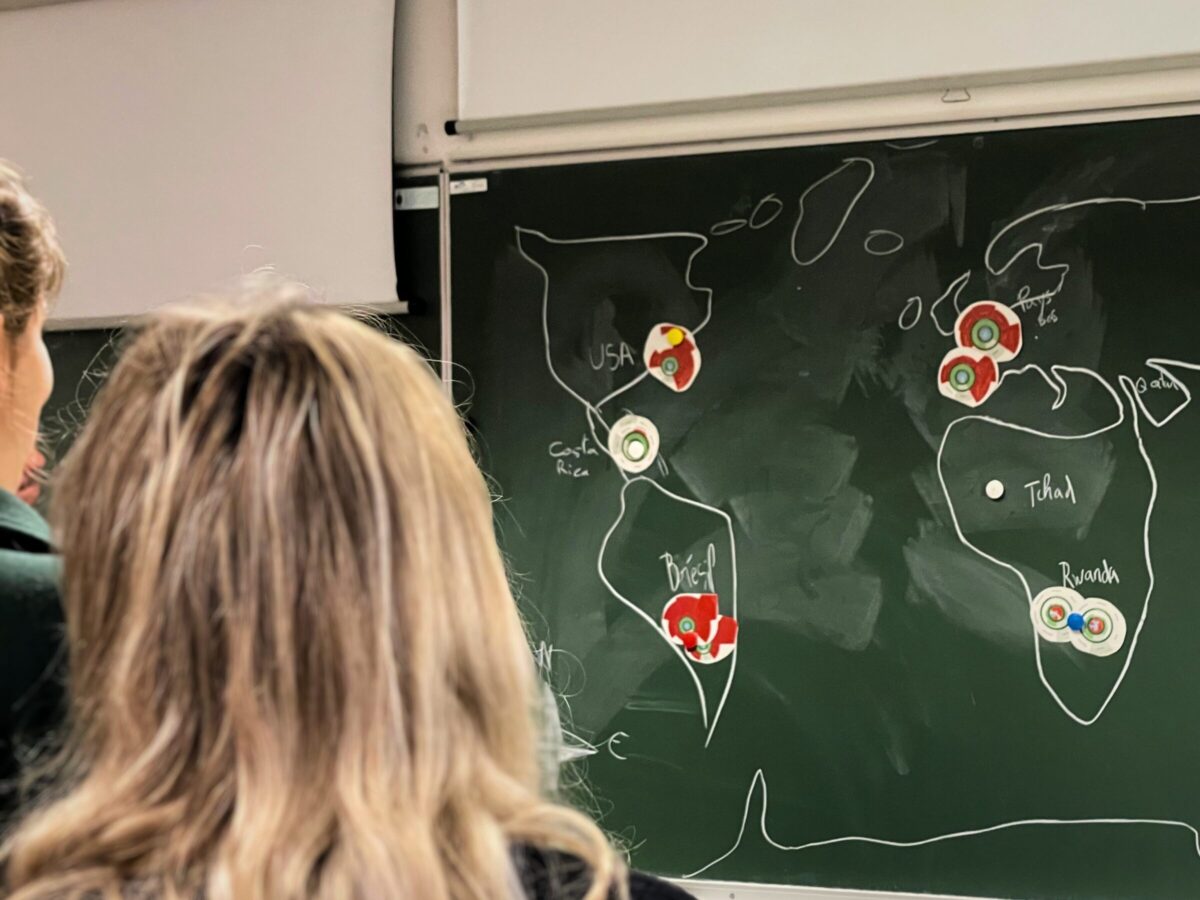
An Open Forum to Present the Results
In the afternoon, the general public had access to the work carried out in the form of an open forum in the IUEM reception hall. This participatory format enabled visitors, students and staff alike, to discover the proposals, negotiation scenarios and solutions devised to meet the challenges of sustainable development.
The stands and lively discussions encouraged exchanges between students and visitors, in an atmosphere that was both friendly and stimulating. The event not only showcased the creativity and commitment of the students, but also stimulated a collective reflection on possible ways of achieving a sustainable future.
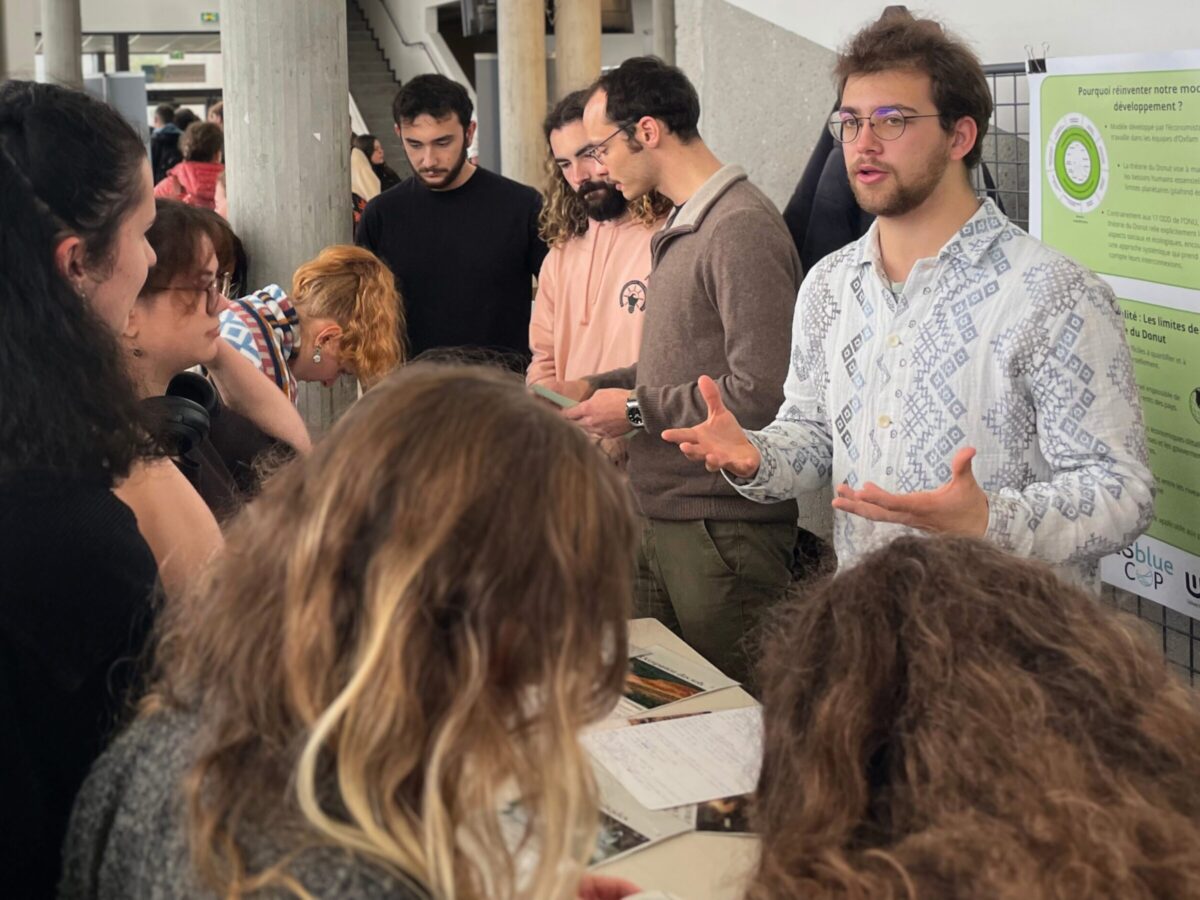
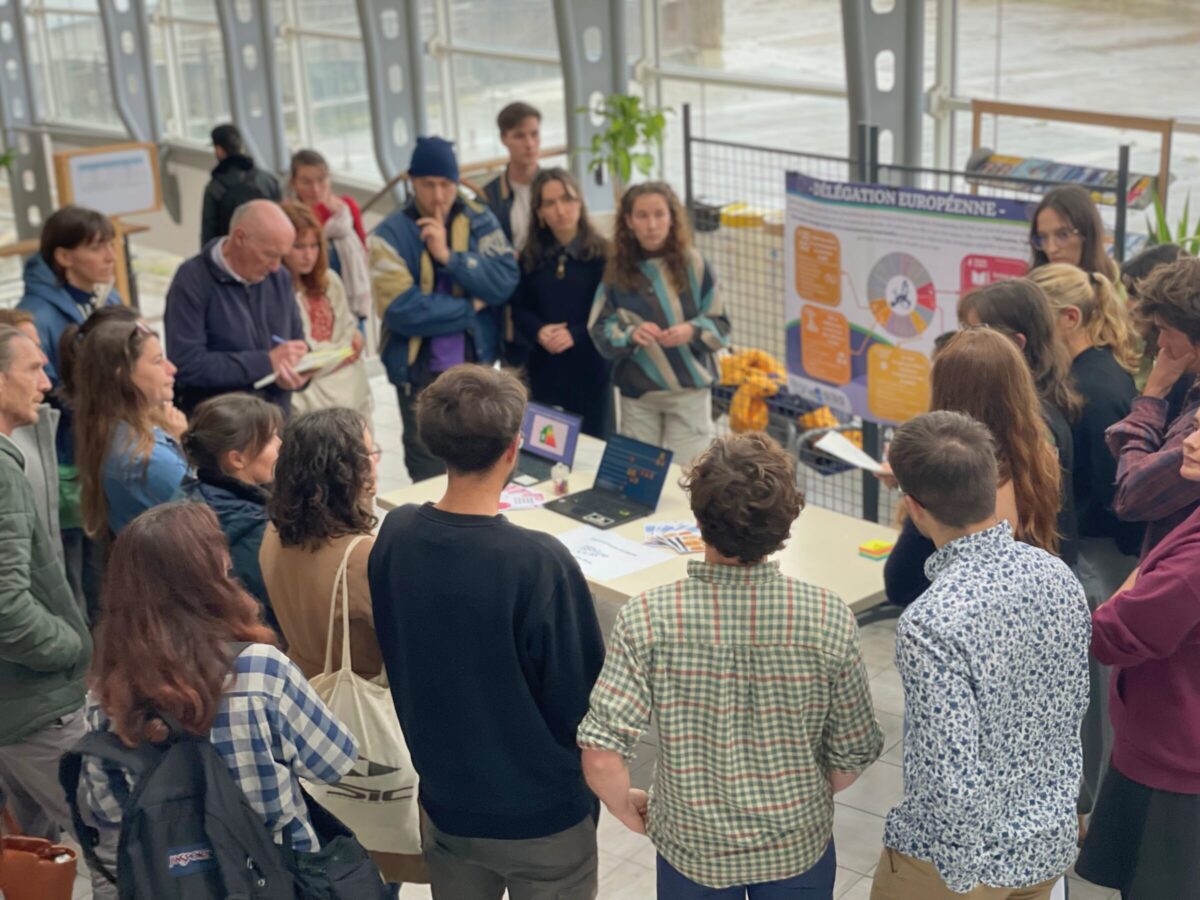
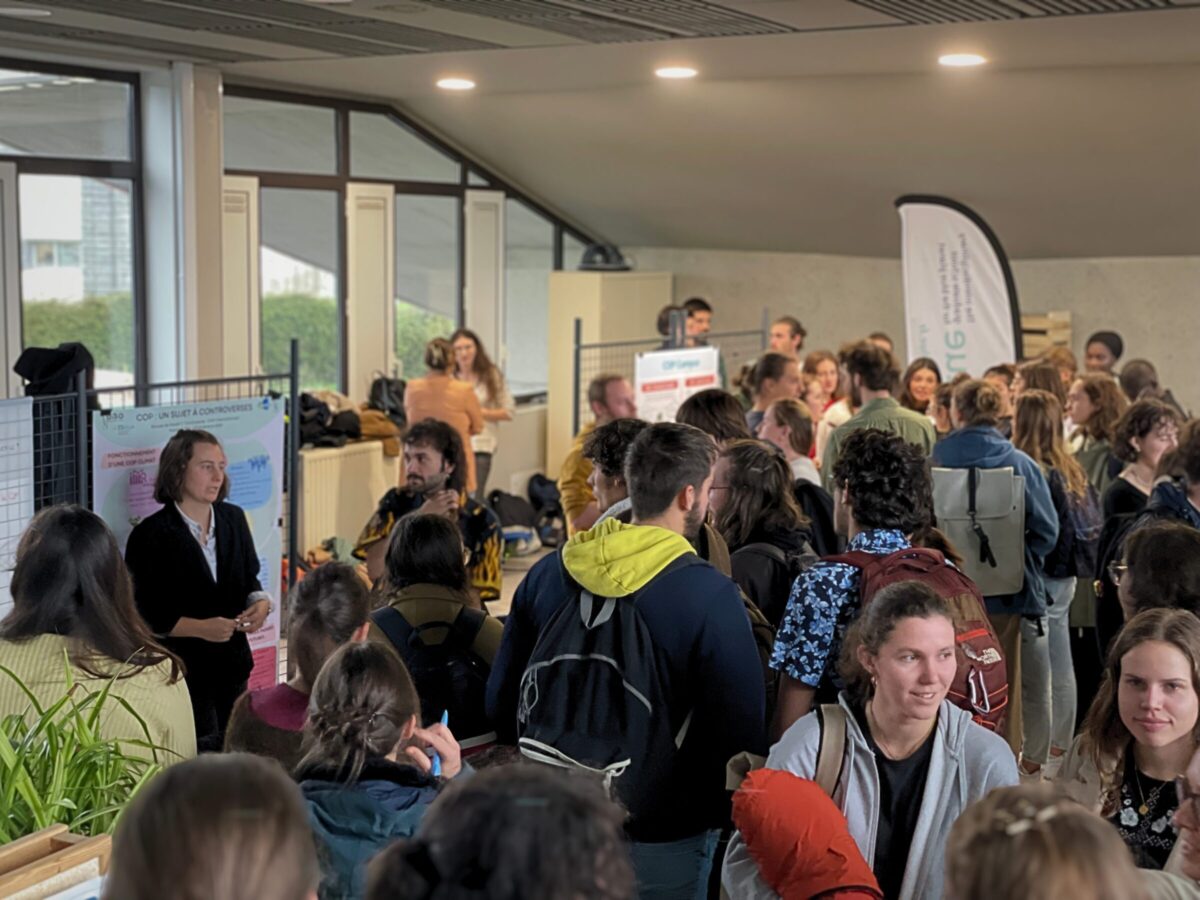
This original teaching format, supported by the ISblue project, illustrates the importance of learning by doing. By plunging students into the heart of climate issues, it prepares them to become actors of change, capable of actively contributing to discussions and solutions for socio-environmental transformation.
 Attention, vous utilisez un navigateur peu sûr !
Attention, vous utilisez un navigateur peu sûr !